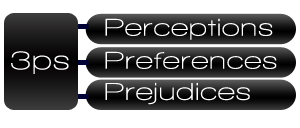Should You Suppress Your Culture?
This is always one of my most popular post, probably not because it is a question that many want to ask. In a world of tattoos, hair styles, and social media, so many want to be ‘individuals’. I rerun it because I want you to be yourself, but also be employed. Sales may not be unique in its level of internal and eternal visibility, but it is special. Check it out!
___________________________________
This is an interesting topic, and that is why we would like to cover it here. God has given us the gift of being different. We come from so many backgrounds that it is difficult to point them all out. There are as many variations in our culture as there are reasons to rejoice about it.
I am going to give a definition of your culture that is slightly shortened from Webster’s Online Dictionary (Definition of Culture):
The integrated pattern of human knowledge, belief, and behavior that depends upon the capacity for learning and transmitting knowledge to succeeding generations. Additionally, the customary beliefs, social forms, and material traits of a racial, religious, or social groups.
In other words, that which is part of you because of your surroundings and your past including that which is learned and absorbed, and that which you will be passing on to others.
This is a broad interpretation. I think you will agree that it is interesting that culture, in the form of one’s diverse background can actually be a lightening rod for criticism or even a reason for exclusion in the world of corporate employment. Comfort, likeability, even preference is affected by one’s background, color, and certainly culture. Now these are not synonymous at all, they just blend to make a concoction that many employers avoid drinking.
Decisions on hiring, promotion, and even things as simple as who gets referrals and redistributions are done on the basis of how you are perceived. Is it always fair? I am more than certain that it is not!
What Are You Suppressing?
It is always wise to be yourself while in the office or work environment, as it is easier that way. But…the self you need to be is the one that not only got you hired, but the one that can sustain your employment. I am not saying you should be a chameleon. You need to know how to be you, the business professional during the hours that you are selling the services and products that provide your living.
The workplace is a vessel of many principles and traditions. You don’t have to conform to all of them, yet need to know which ones are important enough to follow so that you don’t damage your chances of success.
Suppress your culture? Suppress it only if your culture runs afoul of the principles and traditions of your customers and your employer, and then, you only need to suppress it at work. Should you wear your culture on your sleeve while you are at work? I think you will agree that the answer is a resounding NO!
Let’s be Practical
Here is a brief look at some of the situations that commonly occur just to give some practical perspective.
Promotion - Your interview for a promotion is much anticipated. You are working, in a conservative industry (commercial banking), for a conservative bank. What do they expect from you in terms of your delivery, your approach to customers, your educational background, and your appearance?
Job Interview - You are in search of a position fitting your years of experience and your success in the past. You are known as a solid sales professional and you want to move up in position by taking a sales manager role. In addition to all else, your results have indicated that you are the likely candidate. What will get you hired in this coveted position?
Reduction in Force - You are a solid performer, yet you recognize that they are considering layoffs in your sales department. You feel you are a key performer, yet realize that there are others who have done a good job as well. Your numbers are solid, and your product and industry knowledge are exemplary. How are they going to make that decision as to who stays and who goes?
In each of these examples, there are two common denominators. One is the fact that you are competing against others. The other is that you still have a customer who has expectations from a business standpoint.
In each of the above, you could have problems if you stray from being race neutral in your approach. Also note that you still deal with the forces of the 3P’s, Perceptions, Preference and Prejudice. Cultural diversity can and will sensitize this. Whether you are black, brown, tan, yellow, or white, you need to recognize that if you are race neutral in your professional manner, you have a better chance of professional success.
I don’t care whether you are white or brown, if your organization has a policy against dreadlocks, braids, and Mohawks, you may want to avoid fighting it, and consider a profession or employer who does not care. Keep your individuality, and exercise it when you are on your own time.
If tattoos and piercings are part of your culture or appearance, you should consider a sales career where those things don’t matter. Most sales careers are not the place to be too different as there is a customer out there who will make the decision on degree of difference.
There is no doubt that you need to be the image of the consummate professional in the customer’s eyes.
Is this selling out?
This is a good question. What I am actually saying is that you must play the professional role in this theater. Be as different as you want during your off hours. Your alternatives to conforming are self-employment and other careers. You are not selling out by being the professional.
One Last Word
You can be an activist in the street, a militant about social issues, or a pacifist about conflict. I am advocating that when it comes to professional sales, be the consummate professional (while at work) who is also an activist in the street, a militant about social issues, or a pacifist about conflict.
It can be done. It is done in sports and in many other arenas.
Be the best!
Your comments are welcome.
 October 22, 2012
|
Posted by Admin9!
October 22, 2012
|
Posted by Admin9!

 Categories:
Categories:  Tags:
Tags: 


Your Comments